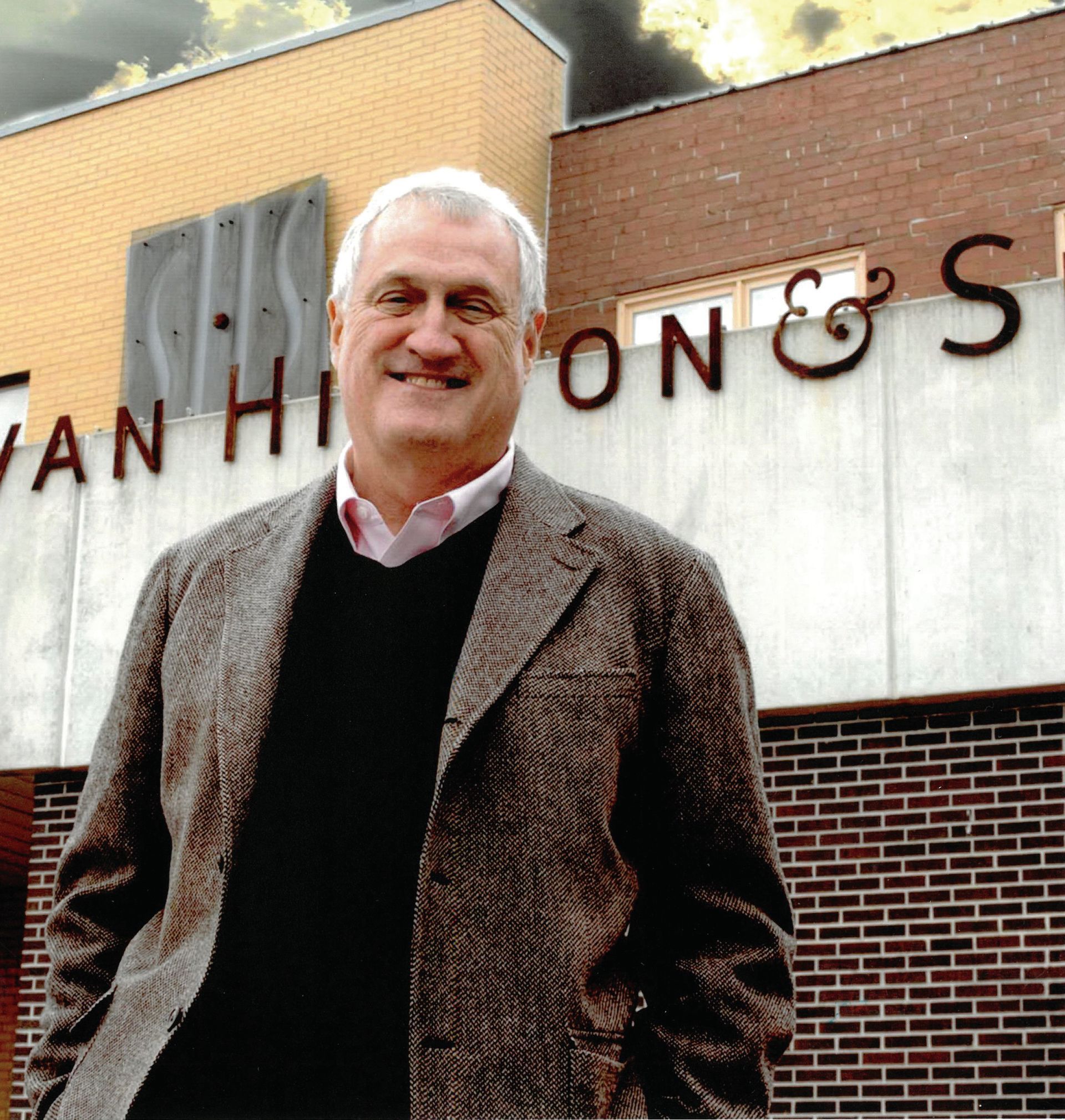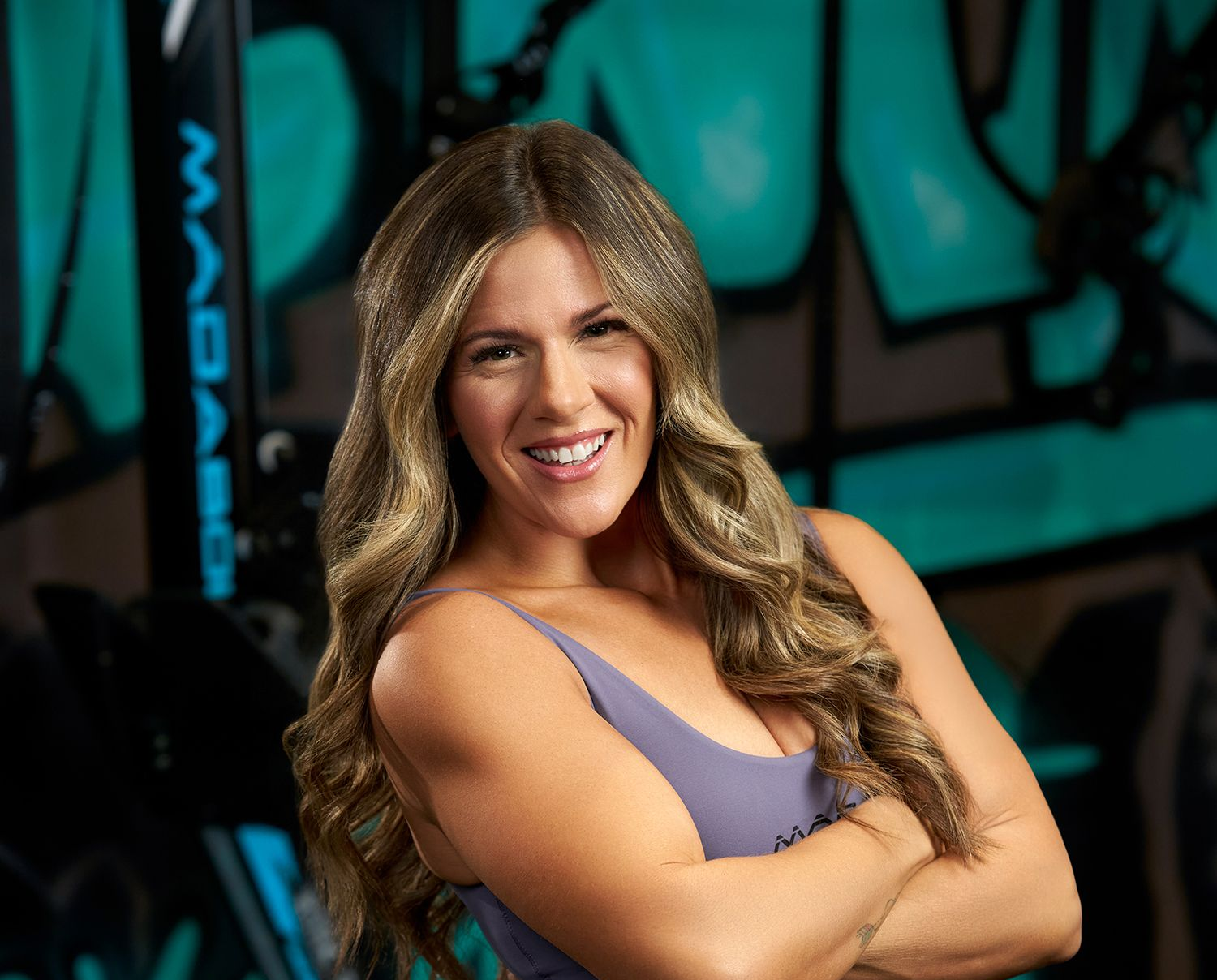Living With ARFID: Rachel Conrad’s Journey to Answers
Written by Paige Feikert
Local Help Is Available for Recently Recognized Eating Disorder
Written by Paige Feikert
Rachel Conrad has always struggled with eating.
“As soon as I started transitioning to solids [as a child] I really started to control the narrative,” Conrad said. “I would prefer to eat sticks of butter than regular table foods.”
Conrad’s parents — both speech language pathologists by trade — looked for creative ways to feed their daughter. Some days Conrad would only eat Sunkist fruit snacks — this specific brand and variety. She’d rather eat an entire box of these fruit snacks before eating chicken nuggets, or pasta, common foods that kids reach for.
In social settings, Conrad would tell people she was allergic to certain foods to avoid eating them. She has memories of hiding her food in the trash after her parents left the dinner table.
By her teenage years, doctors turned to well-known eating disorders — suggesting Conrad was struggling with an eating disorder such as anorexia nervosa or bulimia, as she wouldn’t eat for days and showed similar symptoms to both diseases.
“At the time they didn’t recognize that my feeding challenges were because of my relationship with food, they thought it was because of all of the chaos that was happening in our world, that I was just trying to control something,” Conrad said.
By college she started to realize that she was always covered in bruises, and while her friends could cover dark circles under their eyes with concealer, hers always showed through. She went to a doctor and found that she was severely deficient in nearly every marker she could be tested for. She started to isolate herself, skip social events due to the fear that they would be focused on food.
“I quite literally lived off of the chicken ramen noodles in college — not because I couldn’t afford other foods, because that’s the only thing I felt safe putting in my body,” Conrad said. “It became incredibly isolating because almost every social gathering you go to has some sort of food component, which is really, really limiting when food is a stressor in your life.”

Finally Finding Answers
Conrad, who herself became a speech language pathologist, recognized something was wrong. Finally, in 2019 after decades of struggle with eating, she found an answer.
“I was watching continuing education and I was crying and I didn’t realize I was crying until I touched my face and my face was wet and I was like ‘This is me, I’ve found my diagnosis,’ ” Conrad said.
The diagnosis — Avoidant/Restrictive Food Intake Disorder, or ARFID, an eating disorder where individuals limit the amount and types of foods they consume. According to the National Eating Disorders Association (NEDA), unlike many other eating disorders, ARFID is not motivated by body image, but rather a lack of interest in food, sensory sensitivity and fear of adverse consequences to eating, such as choking or vomiting. According to a 2023 study published in the “Journal of Eating Disorders,” ARFID affects up to 15.5 percent of Americans.
Michelle Riggs, a registered dietitian working with ARFID patients in Wichita, understands the frustration, fear and helplessness many caretakers and loved ones feel while seeking an ARFID diagnosis.
“I was a caregiver to a loved one living with an eating disorder, but we weren’t sure if it was ARFID. We kept getting value of care but not quality of care because of the lack of understanding of the illness 10 to 15 years ago,” Riggs said. “I ended up doing a lot of research and thought ARFID was what it might be.”
Through her experience, Riggs found that Wichita did not have the resources to properly support and treat ARFID patients at the time. The experience inspired her to go back to school and become a registered dietitian focusing on ARFID.
“It started from a place of personal lived experience and seeing a space that needed to be filled and wanting to fill that space,” Riggs said. “I could provide care for the patient but also have relatability from a caregiver perspective.”

Picky Eater vs. ARFID
ARFID was not formally recognized as a diagnosis until 2013. Many loved ones might mistake ARFID for “picky eating,” a common behavior of young children, but what parents and caregivers realize — and now medical professionals working with ARFID patients understand — ARFID is much more dangerous than picky eating.
“A picky eater will eventually eat [a less palatable or preferred food] if they get hungry enough, a child with ARFID will not,” said Dr. Melissa Hopper, a psychologist and clinical associate professor with KU Wichita Pediatrics.
Dr. Hopper says a picky eater might choose chicken nuggets over other foods, regardless of the brand or restaurant they come from, whereas someone with ARFID will only eat a particular type of chicken nugget and it must be cooked in a specific way. This becomes incredibly limiting for children and their families.
“Families will avoid restaurants because there is no guarantee there will be a food their child can eat. They may pack their own food or go to several places to find preferred foods,” Dr. Hopper said. “I once had a family who would pack a suitcase of their child’s safe foods for vacation.”
Not only is ARFID limiting, but it is also dangerous. A 2024 study published in the “Journal of Eating Disorders” found that hospitalizations for ARFID are increasing. According to the study, the median hospital stay for ARFID patients was 7 days, and more than 8 percent of patients were readmitted within 30 days. Hospitalizations were often due to malnutrition, in many cases requiring a feeding tube to supply nutrition.
“Picky eaters don’t tend to have nutritional deficiencies, picky eaters will usually grow through it — it might take some time, but they’ll usually grow through it — but there’s not the same drop-off in growth. Some kids with ARFID end up needing feeding tubes,” Dr. Hopper said. “The level of medical intervention is much higher with ARFID.”
The Orange File
Commonly, children with ARFID prefer highly palatable foods, particularly packaged foods, because they are consistent. For example, blueberries can be sweet sometimes, and tart other times depending on their ripeness or where they are picked. Whereas packaged mac and cheese cups or McDonald’s french fries always taste the same. Dr. Hopper describes it as people who aren’t living with ARFID and have a diverse diet have a ”file” in their brain for each food, which describes the flavors, textures, variations and more, however people with ARFID don’t have that file, and that can be scary, overwhelming and anxiety-provoking.
“A kid with ARFID doesn’t have an orange file, so when we’re asking them to try something like an orange, we’re asking them to create an entire new file and that is overwhelming,” Dr. Hopper said. “So kids with ARFID might do better with those packaged oranges, because those are the same every time.”
But professionals working with ARFID patients and their families say those packaged foods are okay — keeping kids fed is the number one priority, regardless of the foods they’re eating. Of course, exposing kids to new foods can also be part of treating ARFID, but the goal is to reduce stress, fear and anxiety around foods.
“I think we should be careful about labeling foods as good or bad,” Dr. Hopper said. “Reduce as much pressure and stress around meals as possible, because so many kids with ARFID also have anxiety, so if we make eating an anxious experience then it’s not enjoyable for anybody.”

A Complex Disorder
ARFID is commonly accompanied by anxiety and other mental health disorders, and common treatment for ARFID includes teams of professionals who can address the complexity of the disorder.
People living with ARFID and caretakers oftentimes have a long road to a diagnosis. ARFID is still a relatively new diagnosis, coupled with the societal pressures and mischaracterization of the disorder as picky eating, often coming with a stigma of parents spoiling their children.
“One of the core tenants of parenting is ensuring that our children are safe and fed,” Dr. Hopper said. “When this doesn’t happen as expected, one can experience a tremendous amount of shame — many parents blame themselves.”
Societal pressure from other kids at school, other parents, even their own extended families only add to the shame and judgement that people living with ARFID feel.
“People living with ARFID get so much judgement out in the wild because of lack of understanding and lack of basic empathy,” Riggs said. “I really wish we could break up with the idea that we can comment on what people are eating or what peoples’ bodies look like.”
Professionals in Wichita are working with people of all ages from as young as three years old to adulthood. Care teams include a range of specialists — speech language pathologists, dietitians, psychologists, pediatricians — teaming up with various treatments from talk therapy to painting with condiments to reduce the fear around food. The primary goals of providers is to reduce fears surrounding food, support families and caretakers, and to reduce the stigma of ARFID.
“You are enough, you are doing enough and sometimes it’s okay for you to ask for help and sometimes it’s okay to say this is too big of a burden to carry and I need someone to support me,” Conrad said. “I want you to remind yourself of how far you have come with your child or with yourself and let that fuel you to reach out for help and be vulnerable in that situation so you can get the right support.”
If you suspect that you or your child are living with ARFID, start with your primary care physician or pediatrician and ask for a referral to a registered dietician. Both Conrad and Riggs are part of a local network of providers called The Village, supporting patients through perinatal mental health and eating disorders. Their goal is to help build care teams to support people in Wichita who are living with ARFID and those who care for them.
‘I once had a family who would pack a suitcase of their child’s safe foods for vacation.’ — Dr. Melissa Hopper, psychologist and professor with KU Wichita Pediatrics
“You are not on your own — it is so stressful, it is so overwhelming and it can be a lot emotionally for a caregiver, not just the person living with ARFID,” Riggs said. “Reaching out and grabbing on to people, it’s like, ‘Oh my gosh this feels so validating. I feel seen; I feel heard.’ Those are foundational steps in helping your person.”
After her diagnosis, Conrad was inspired. She reached out to an organization called Feeding Matters in search for resources for adults living with ARFID. She joined a consortium within the group and was soon voted as the consortium chair. She now dedicates her Fridays to research and advocacy. She’s working on a peer mentorship group for young adults with ARFID. This in addition to her work as a speech language pathologist, where she works with local children with ARFID to reduce fears and anxiety around food, ensuring kids that they are not alone.
“I truly, truly do not want another child to go through what I did growing up,” Conrad said. “If I could do the most in the world to help a child through their journey, I’m going to do everything in my power to do that.”
Now, Conrad recognizes her own growth with ARFID. After a diagnosis decades in the making, she is surrounded by a well-informed support system and continues her work, sharing her voice for others, and finding her voice for herself.
“Now I don’t say I’m allergic, I say I don’t eat that and when people ask why I say because I have ARFID and those foods are very triggering to me,” Conrad said. “It took me thirty years to get there — these last two years are really when I’ve been more comfortable unmasking those long-term lies I would tell to protect myself and keep myself safe.”
Resources:
thevillageict.com;
feedingmatters.org
Resources
You can connect with local providers through The Village at thevillageict.com. Find resources for ARFID and Pediatric Feeding Disorder, including a questionnaire to help identify areas of concern through Feeding Matters at feedingmatters.org.
Resources: thevillageict.com; feedingmatters.org










